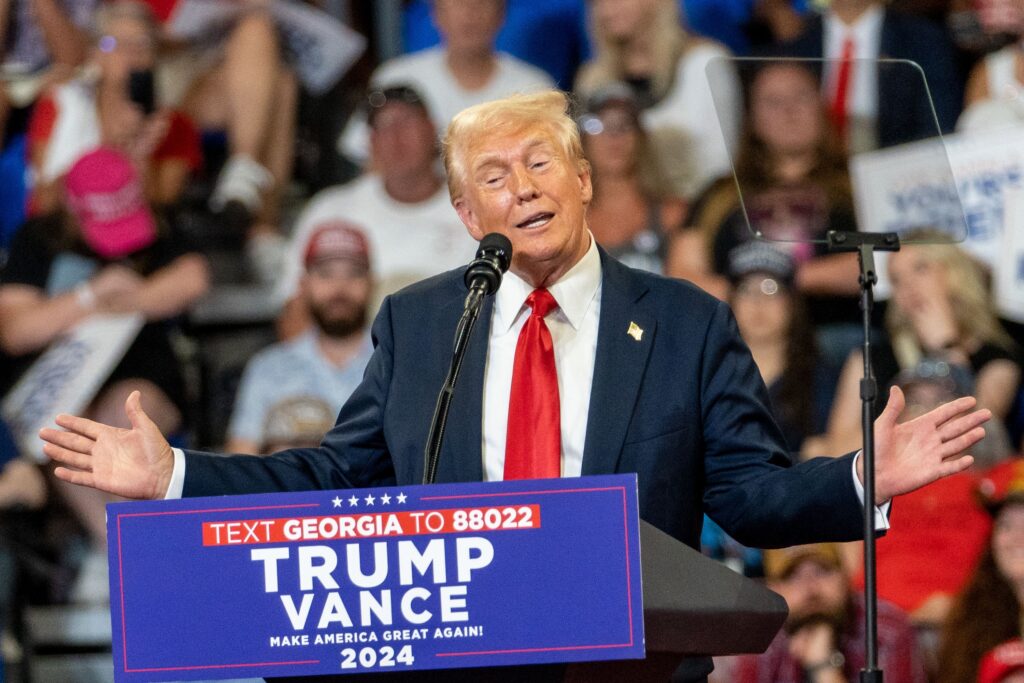Trump job cuts: The Trump administration has announced significant workforce reductions, cutting over 11,000 positions at the Internal Revenue Service (IRS) and the Pentagon. This move is part of a broader effort to downsize the federal government and reduce costs.
On Thursday, the IRS started laying off 6,000 employees during the middle of tax season, a decision that could impact millions of taxpayers. Meanwhile, the Pentagon is set to cut more than 5,000 civilian jobs next week. The Department of Defense (DoD) has also issued a hiring freeze, preventing new hires from filling vacant roles.
Government Efficiency Office Manages Job Cuts
The Department of Government Efficiency (Doge), overseen by Elon Musk, is leading this workforce reduction effort. The strategy aims to trim government spending while increasing operational efficiency.
At the IRS, layoffs are primarily affecting probationary employees—those who have worked for the agency for less than a year. Some recently promoted workers may also lose their positions. An internal email, reviewed by CBS News, confirmed that the cuts would mainly impact the Small Business/Self-Employed (SBSE) Division.
Lia Colbert, the SBSE Commissioner, stated that 3,500 probationary employees will be dismissed by the end of the week. She also acknowledged concerns about how these layoffs might affect IRS operations, particularly in tax compliance and customer service.
As of the 2023 fiscal year, the IRS employed around 83,000 workers. The reduction in staff is expected to put pressure on tax services, making it harder for taxpayers to receive assistance.
Harvard professor Linda Bilmes commented on the potential challenges this could create. “People dislike paying taxes, but they hate even more not being able to get help when filing them,” she said.
Pentagon Reduces Workforce, Prioritizes Military Personnel – Trump job cuts
The Pentagon, the largest employer in the federal government with approximately 950,000 civilian employees, is also undergoing major staffing changes. The first round of layoffs will remove 5,400 workers, with the possibility of further reductions in the coming months.
Defense Secretary Pete Hegseth has supported these cuts, emphasizing the need for a leaner, more efficient Pentagon. Last week, he posted on X (formerly Twitter), saying, “The Pentagon must cut the fat (HQ) and grow the muscle (warfighters).”
Many of the job cuts will affect administrative and support staff, while frontline military operations remain a priority. A senior DoD official, speaking anonymously, said, “The goal is to eliminate redundancy and ensure every dollar spent goes directly to defense readiness.”
The hiring freeze will further restrict employment opportunities, potentially delaying projects that require civilian expertise.
Political Reactions to Workforce Cuts
The decision to cut government jobs has sparked mixed reactions across the political spectrum. The Biden administration had previously secured $80 billion in funding to expand IRS operations and hire more employees. Republican lawmakers, however, have strongly opposed the expansion, advocating for a smaller and less intrusive tax agency.
In a Fox News interview, Commerce Secretary Howard Lutnick revealed that Trump’s long-term goal is to replace the IRS with an “External Revenue Service” that relies primarily on tariffs rather than direct taxation. “The president believes in a simpler, more efficient way to collect taxes,” Lutnick stated.
Democrats argue that the job cuts will have negative consequences. House Minority Leader Hakeem Jeffries criticized the layoffs, stating, “Reducing IRS staff in the middle of tax season will cause chaos for taxpayers.” He also warned that slashing Pentagon jobs could disrupt national security operations.
Meanwhile, Trump’s allies view the cuts as necessary reforms. Republican Senator Josh Hawley praised the move, saying, “Government bloat is a real problem, and these layoffs are a step toward fixing it.”
Public Opinion and Future Implications
Public reaction to these cuts remains divided. A Washington Post/Ipsos poll found that 54% of Americans disapprove of Trump’s handling of the federal government, while 44% support his efforts to streamline operations.
Experts warn that reducing government staff could lead to delays and inefficiencies in essential services. The IRS, already struggling with high call volumes, may find it even more challenging to assist taxpayers. Similarly, Pentagon cuts could slow down procurement and defense logistics.
As these layoffs unfold, both agencies will need to adjust to a leaner workforce. The long-term impact on government services and national security remains uncertain, but the administration appears committed to its strategy of reducing federal employment.
For more updates on this developing story, visit Euro News 24.
